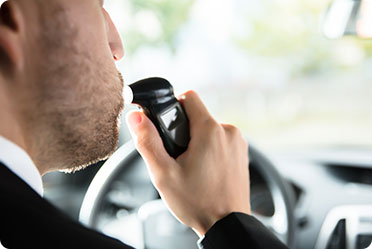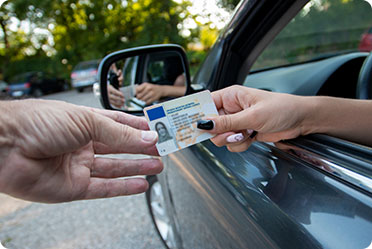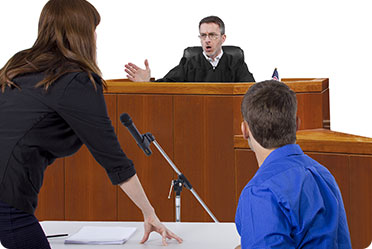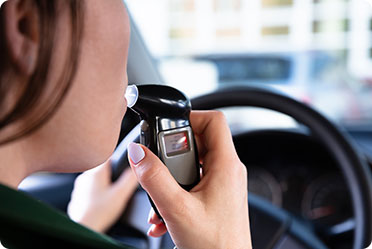
With Thanksgiving and Christmas quickly approaching, the increased opportunities to get arrested for a DUI approach as well. This article provides common sense tips to avoid drunk driving. Tip 1: Don’t drink alcohol and then drive. This is the simplest piece of advice. As a DUI / DWI attorney, I have learned to never trust so-called alcohol detection technology. Portable breath testing devices (PBT), evidential breath testers (Breathalyzer, Alcotest, etc.), and laboratory blood testing are all flawed to some degree. Moreover, the people operating those devices often make errors. Sure, a qualified attorney can be hired to defend you against…Read More

On November 3, 2010, the disciplinary counsel for the New Jersey Advisory Committee on Judicial Conduct filed an ethics complaint against former Mount Laurel Municipal Court Judge Gregory McCloskey. The complaint alleges that the judge presided over the trial of State v. Thomas Grabovich, in which the defendant was charged with a DWI and refusal to submit to breath testing. During a break in the trial, the judge allegedly conducted an ex parte conference with the prosecutor while defense counsel, Kevin Leckerman, was not present. The judge directed the prosecutor to ask his witness certain questions when the trial resumed.…Read More

The Commonwealth of Pennsylvania has very strict laws governing those who drive under the influence of drugs and/or alcohol, whether you are a first, second, or third offender. The ignition interlock law was implemented by the government in order to reduce highway crashes, reduce highway fatalities and deter repeat DUI offenders. If you were arrested for driving under the influence in the Commonwealth of Pennsylvania and this is your second offense, you are required to install an ignition interlock device in each vehicle owned or registered to the offender for at least one-year’s time. Interlock Costs An offender ordered to install an…Read More

The State of New Jersey has strict penalties for drivers convicted for driving under the influence of drugs and/or alcohol. Those penalties include fines, jail time, community service, suspension of a driver’s license, the impounding of your vehicle and much more. Moreover, the penalties are harsher for a person convicted of a DWI in New Jersey with a Commercial Driver’s License (CDL). Conviction of a DWI for a first time offender results in the loss of the CDL for one year. Conviction of a DWI for a second time offender results in the loss of the CDL for life. There…Read More

Silence during police interrogation does not invoke a right to remain silent. A criminal suspect must “unambiguously” invoke a Miranda right to remain silent during questioning. Recently, the United States Supreme Court made a surprising ruling that requires a suspect to unequivocally express a desire to remain silent before that constitutional right can be honored. In Berghuis v. Thompkins, police officers questioned Van Chester Thompkins regarding his suspected involvement in a homicide. The officers placed Thompkins in a room that was 8 by 10 feet. While inside the room, the police questioned Thompkins for almost 3 hours. During that time,…Read More

Possessing a commercial driver’s license (CDL) in the Commonwealth of Pennsylvania comes with tremendous responsibility, especially when it comes to drinking. Should you have a CDL in Pennsylvania and be stopped for DUI, you are in serious risk of losing your CDL and other major fines and penalties. A driver with a CDL who is operating his or her commercial vehicle is required to have a Blood Alcohol Content level less than .04. In fact, a BAC of .04-.159 is considered the high-tiered level for CDL drivers. Should you be convicted of a DUI with a CDL license, whether in your commercial vehicle…Read More

Recently, private interest groups have spearheaded a legislative effort to have the U.S. congress appropriate money to research new alcohol detection technology. If the plans of these interest groups are successful, then ultimately each new car sold in the United States will have a device attached that will supposedly measure the amount of alcohol in a driver’s system before the operator can start the vehicle. On June 23, 2010, the Pennsylvania Liquor Control Board (PLCB) launched a pilot program for self-service wine kiosks in two supermarkets. According to the PLCB board chairman, Patrick Stapleton, “The self-service kiosks are an exciting…Read More

Driving under the influence of drugs and/or alcohol in the Commonwealth of Pennsylvania comes with very hefty penalties such as fines, license suspension and jail-time. If you have been convicted for a DUI, it is possible that your license has been suspended for a period of at least one year for that violation. If your license was issued by Pennsylvania, you may be eligible to obtain an occupational limited license (OLL) to get to work, school or medical treatment. Residents of Pennsylvania cannot apply for an occupational limited license if the license has been revoked, cancelled, recalled or disqualified for certain offenses.…Read More

If you are facing a DUI, chances are that you are willing to do any and everything in your power to prevent a conviction from happening. A conviction for driving under the influence can result in high costs and fines, costly attorney fees, the suspension or revocation of your driving privileges or even worse—jail time. It never pays to drink and drive, but there is such a thing as a wrongful arrest. In such a case, experts may be consulted to testify on your behalf and refute evidence in a few different areas. The Field Sobriety Test The field sobriety test, or the…Read More

The basic principle underlying DUI / DWI breath testing is that each person’s body is essentially the same. That assumption is incorrect. Even a child can understand that. However, breath testing results are used as so-called evidence of intoxication in DUI / DWI prosecutions. [See recent news in the Washington Post “400 Drunken-Driving Cases in D.C. Based on Flawed Test” ] Listed below are three flawed premises that form the building blocks for breath testing. In part, breath testing is based on the idea that each person’s blood has the same proportion of red blood cells per volume (45%). n actuality,…Read More